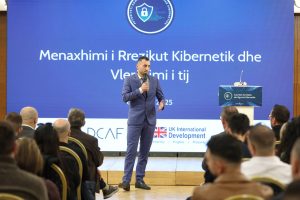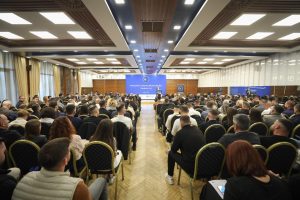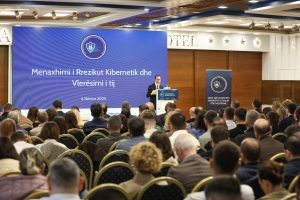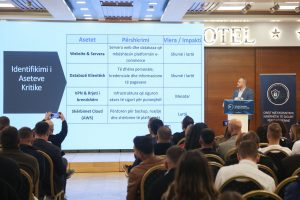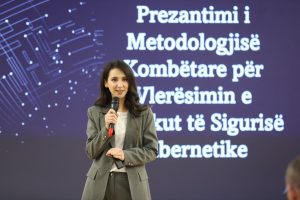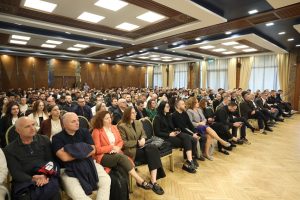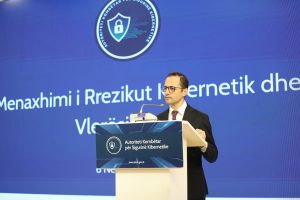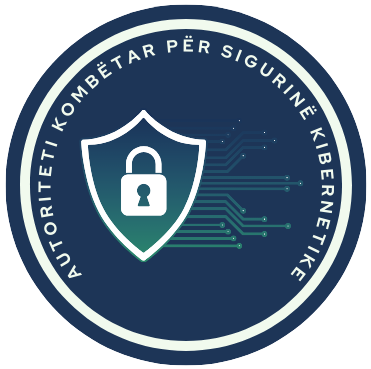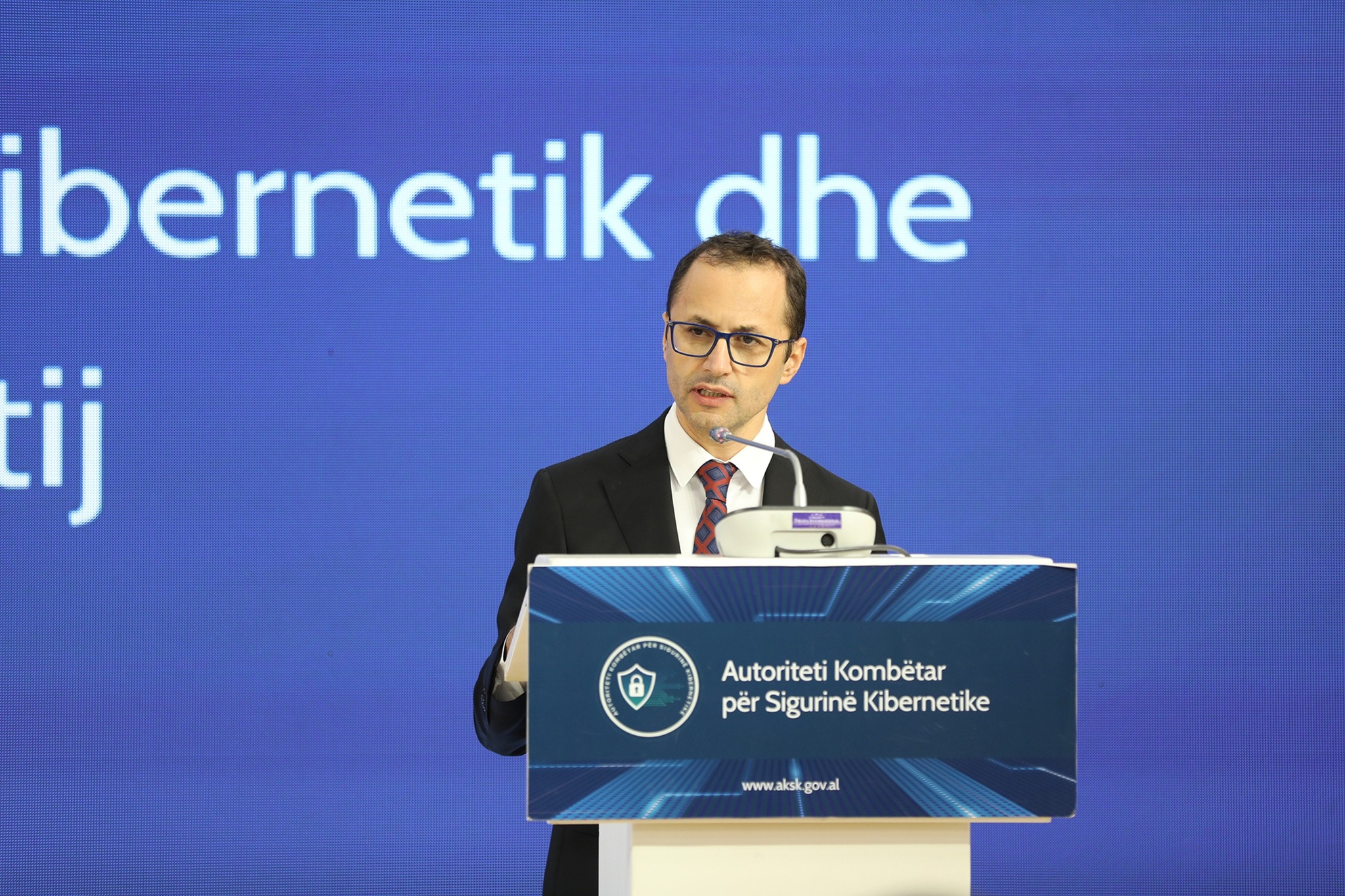As part of efforts to strengthen cybersecurity and ensure national resilience against threats, the National Cybersecurity Authority (AKSK) organized the event “Cyber Risk Management and Assessment”, with the participation of around 300 representatives from critical and important information infrastructures.
In his opening remarks, AKSK’s Director General, Mr. Igli Tafa, emphasized that data and information are the most powerful weapons of a state, underlining the need for a standardized approach to risk, as well as the importance of building a shared culture of prevention and management.
“Only by speaking a common language about risk can we move from a reactive to a preventive society. We must build trust, share information, and invest in standards and human capacities,” said Mr. Tafa, further noting that artificial intelligence is becoming a dual-use tool—one that can strengthen defense but also accelerate cyberattacks if not handled carefully and responsibly.
During the event, AKSK experts presented the National Methodology for Cybersecurity Risk Assessment, a framework that defines the steps, information sources, and implementation process for measuring and managing risk at the institutional level, along with a case study demonstrating its practical application.
The National Cyber Risk Assessment Report was also presented, summarizing key findings and sectoral trends at the national level, and providing a clear overview of the challenges and priorities for improving digital security.
This activity was organized with the support of the Geneva Centre for the Democratic Control of Armed Forces (DCAF), as part of ongoing cooperation to strengthen cybersecurity capacities in Albania.

